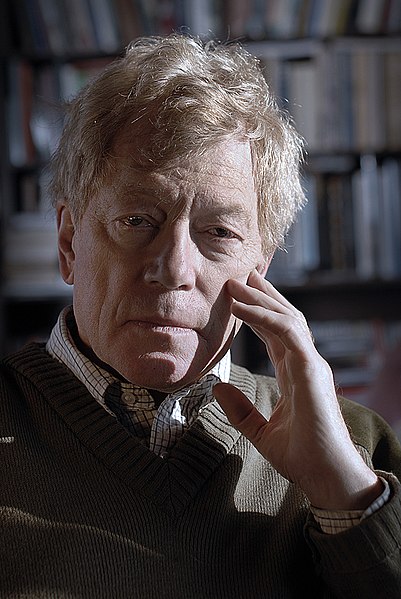Douglas Murray on the life and work of the British philosopher:
Doubtless there will be some talk in the coming days of “controversy”. Some score settling may even go on. So it is worth stressing that on the big questions of his time Roger Scruton was right. During the Cold War he faced an academic and cultural establishment that was either neutral or actively anti-Western on the big question of the day. Roger not only thought right, but acted right. Not many philosophers become men of action. But with the “underground university” that he and others set up, he did just that. During the ’70s and ’80s at considerable risk to himself he would go behind the Iron Curtain and teach philosophy to groups of knowledge-starved students. If Roger and his colleagues had been largely leftist thinkers infiltrating far-right regimes to teach Plato and Aristotle there have been multiple Hollywood movies about them by now. But none of that mattered. Public notice didn’t matter. All that mattered was to do the right thing and to keep the flame of philosophical truth burning in societies where officialdom was busily trying to snuff it out.
Having received numerous awards and accolades abroad, in 2016 he was finally given the recognition he deserved at home with the award of a Knighthood. Yet still there remained a sense that he was under-valued in his own country. It was a sense that you couldn’t help but get when you travelled abroad. I lost count of the number of countries where I might in passing mention the dire state of thought and politics in my country only to hear the response “But you have Roger Scruton”. As though that alone ought to be enough to right the tiller of any society. And in a way they were right of course. But the point did always highlight the strange disconnect between his reputation at home and abroad. Britain has never been very good with philosophers of course, a fact that Roger thought partly correct, but his own country’s treatment of him was often outrageous. As events of the last year reiterated, he might be invited onto a television or radio programme or invited to a print interview only for the interviewer to play the game of “expose the right-wing monster”. The last interview he did on the Today Programme was exactly such a moment. The BBC might have asked him about anything. They might have asked him about Immanuel Kant, or Hegel, or the correct attitude in which to approach questions of our day like the environment. But they didn’t. They wanted cheap gotchas. That is the shame of this country’s media and intellectual culture, not his.
But if there was a reason why such attempts at “gotchas” consistently failed it was because nobody could reveal a person that did not exist. course Roger could on occasion flash his ideological teeth, but he was also one of the kindest, most encouraging, thoughtful, and generous people you could ever have known. From the moment that we first met – as I was just starting out in my career – he was a constant guide as well as friend. And not just in the big things, but in the small things that often matter more when you’re setting out. Over the years I lost count of the number of people who I discovered that he had helped in a similar way without wanting anyone to notice and expecting no reward for himself.
Theodore Dalrymple describes him as “swimming always against the tide”:
He showed great moral courage throughout his career, swimming against the intellectual tide of his time regardless of the deprecation, insult, denunciation, and even hatred directed at him. For a long time, his very name among much of the British intelligentsia was a byword for political atavism or evil, as if he had been a radical advocate of tyranny and pogroms rather than a defender of freedom and civilized values. At the time of his coming to public notice, much of the intelligentsia refused to believe that a highly gifted and knowledgeable man could also be a conservative. Their own rejection of all that was traditional seemed so self-evidently right to them that they thought that the only possible explanation for someone who valued tradition was obtuseness, moral turpitude — or both.
Scruton’s work was so broad-ranging that the term Renaissance Man seems hardly inappropriate. He published books on Kant and Spinoza, on Wagner’s Tristan and Isolde, on the aesthetics of music and architecture, on animal rights, on wine, on hunting, on the importance of culture, on the nature of God, on man’s relations with animals, and on many other subjects. He wrote novels and short stories of distinction, and two operas. The words of Dr. Johnson’s epitaph for Oliver Goldsmith come to mind: he left scarcely any style of writing untouched, and touched nothing that he did not adorn.
This is not to say that many people, or indeed anyone, would agree with all that he wrote, scarcely to be expected in view of his immense output. He accepted disagreement with equanimity, as the natural and laudable condition and consequence of freedom. Unlike many of his detractors, who affixed labels to him and then believed in their veracity, he was fair-minded to those with whom he disagreed and whose ideas he believed had had a disastrous effect on Western society. In the two editions of his book about thinkers of the New Left, for example, he praised them generously for whatever he considered praiseworthy in them. He paid them the honor of reading their work with attention, trying hard to decipher what it meant (by no means easy, given their frequent resort to high-sounding, multisyllabic verbiage), and refuting what was sufficiently intelligible to be refutable.




